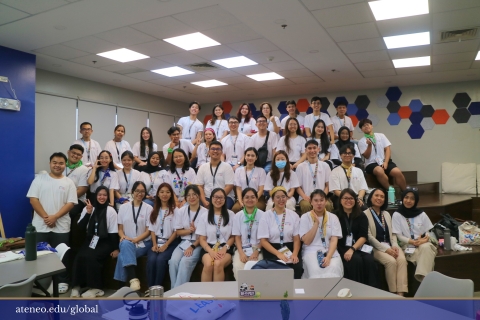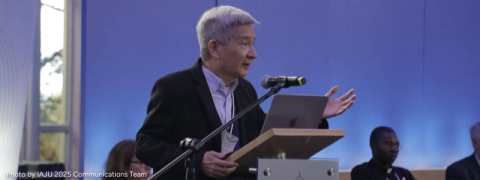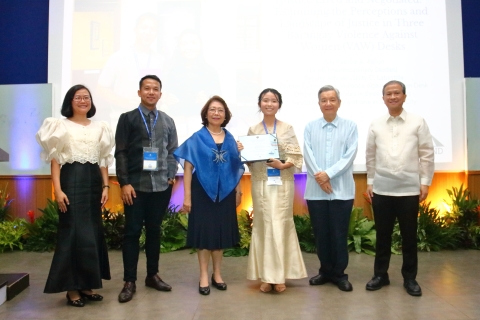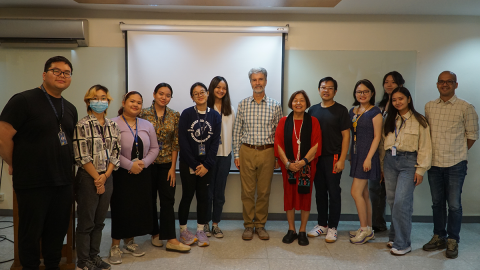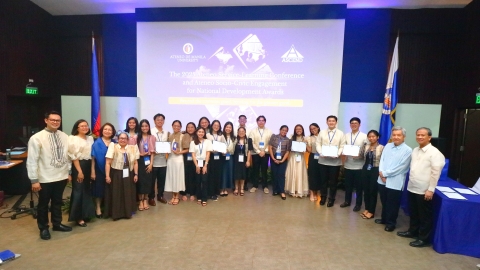Asian scholars tackle AI at 12th ACAS Intl Conference
18 Dec 2024
More than 200 academics and other professionals mostly from Asia converged to discuss AI and Asian realities at the 12th ACAS International Conference on Asian Studies (ACAS ICAS 12) held live and online at the Leong Hall, Ateneo de Manila University on 14 to 15 Nov 2025.
The conference’s theme “Artificial Intelligence in Asian Realities: Opportunities, Challenges, Risks and Social Dynamics” featured six plenary talks and 42 research presentations spread across 14 thematic panels. Presenters came from the academe, business, civil society, and public service from the Philippines, Indonesia, China, Malaysia, Taiwan, South Korea, as well as Germany, and Cyprus. The conference also saw the active participation of student researchers from China, Malaysia, and the Philippines and the inauguration of the “Most Promising Junior Research” award.
Plenary lectures and sessions
In her keynote address, Prof Maria Mercedes Rodrigo, president of the Asia Pacific Society for Computers in Education (APSCE) and co-head of the Ateneo Virtual, Augmented, and Mixed Reality Laboratory, said AI could create new opportunities for learning while also addressing persistent challenges such as universal access and equity. "I remain hopeful," Prof Rodrigo concludes, "that this is not an impossibility but something where we'll actually invest our talent, our time, and our resources in making a reality."
AI in education was also a recurring theme in the five other plenary talks, although these were more focused on other challenges, opportunities, and issues arising from AI.
In her plenary talk, Dr Kyungmee Lee from Seoul National University, also discussed the future of education with AI, drawing insights from past technological shifts in education. She emphasized the importance of learning from previous technological transitions in online distance education to understand the potential and pitfalls of AI in transforming learning environments. While AI could bridge educational gaps, Dr Lee asserted, an over-reliance on technology could also spawn learning and teaching problems.
Identity issues and the challenge of inclusivity were tackled by Dr Adam Poulsen of the University of Sydney, as he discussed the concept of "queering" AI in his talk. He argued that AI needs to be inclusive by design, particularly in the context of Asia, where cultural, political, and economic attitudes toward gender and sexual diversity vary widely. Dr Poulsen emphasized the need for AI models that actively respect and integrate the region’s complex cultural views on gender and identity, urging the public that AI development must be mindful of its social impact.
Prof Tak Wai Chan from National Central University in Taiwan offered a visionary outlook on the role of AI in improving human well-being, particularly through the development of "General Artificial Companions." These AI companions, he proposed, could provide essential emotional and psychological support as technology is integrated with human life to achieve both harmony and well-being. His talk explored the ethical and practical challenges of introducing AI into personal and intimate domains of human interaction.
Speaking on AI in ASEAN, Prof Dr Rayner Alfred of Universiti Malaysia Sabah noted that while AI holds great potential for improving services in the region, the lack of standardized data infrastructure, regulatory barriers, and talent shortages hinder its widespread adoption.
To cap off the plenary sessions, Aaron Vicencio, director of the Eugenio Lopez Jr Center for Multimedia Communication and faculty member of the Ateneo Department of Communication, demonstrated practical AI tools currently available to researchers and practitioners. Discussing how AI technologies are being integrated into communication practices, Mr Vicencio showed how AI is being applied in fields such as media, marketing, and public relations.
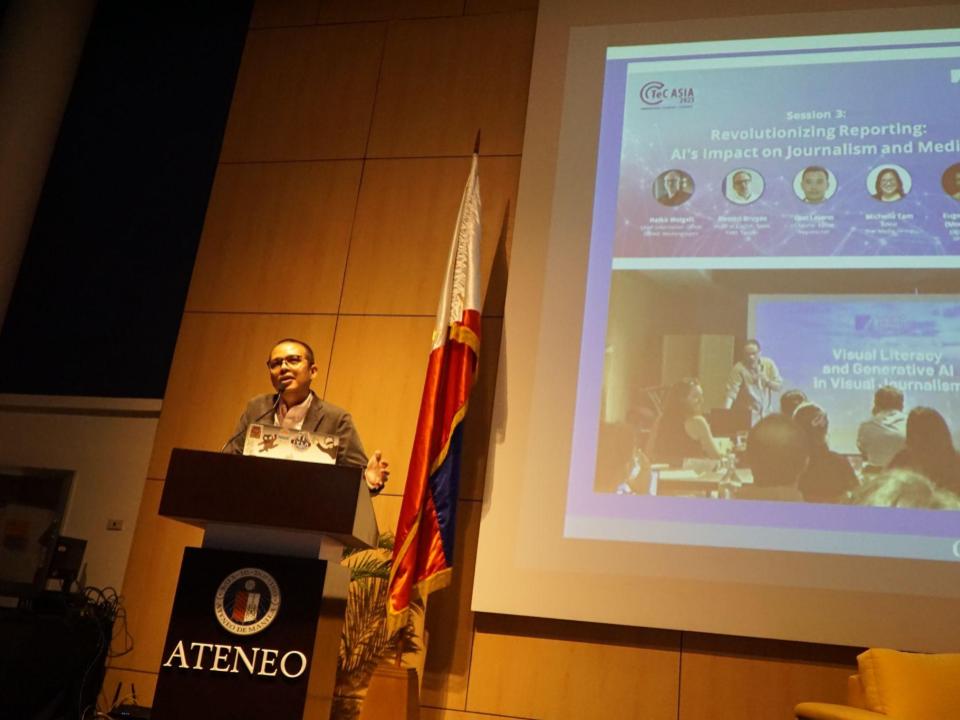
Panel sessions and presentations
The paper presentations included research and conceptual papers that discussed and covered topics such as AI-driven opportunities to enhance learning, accelerate development goals, and foster freedom and social equality. The papers spanned across topics in religion, media, communication and representations, health, human rights and jurisprudence, the world of work, the world of art, personal and national security, and social life in general, including the threats to global peace and order and reflections on ethical issues. In all these, the papers placed Asian realities on the foreground. The problems posed by the digital divide along various levels were alluded to in almost all papers. AI has exposed infrastructure gaps, regulatory issues, and barriers related to digital literacy, capacity for technology adoption, and affordability.
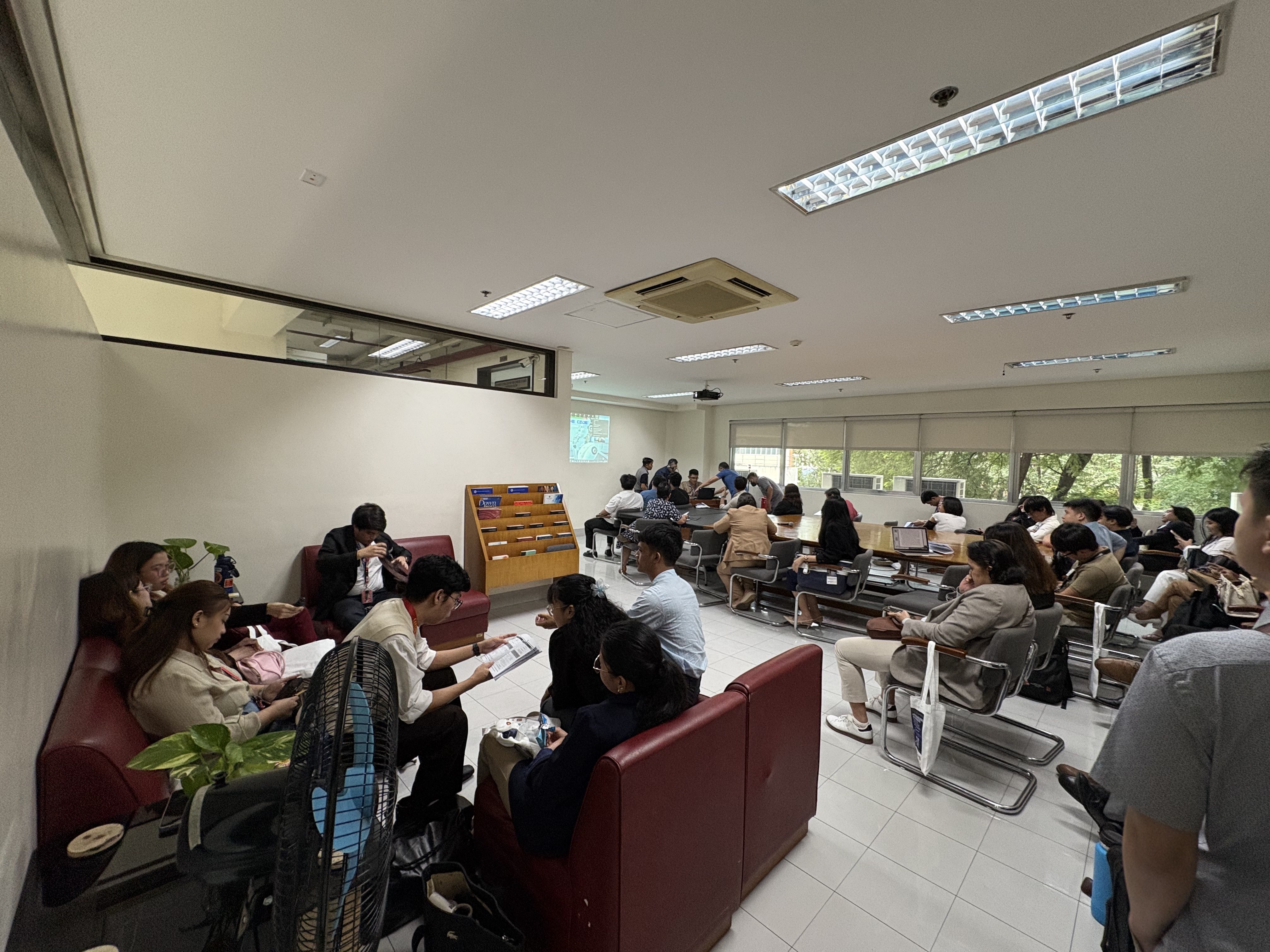
The conference also took the participants on a guided tour of the Ateneo Art Gallery and a walking tour of the college campus.
ACAS ICAS 12 was primarily an in-person conference, with a number of sessions offered in a hybrid, interactive format. All other sessions were recorded for showing during the Extended Conference set for December. Access to the Extended Conference is restricted to registered participants as part of their conference privileges.
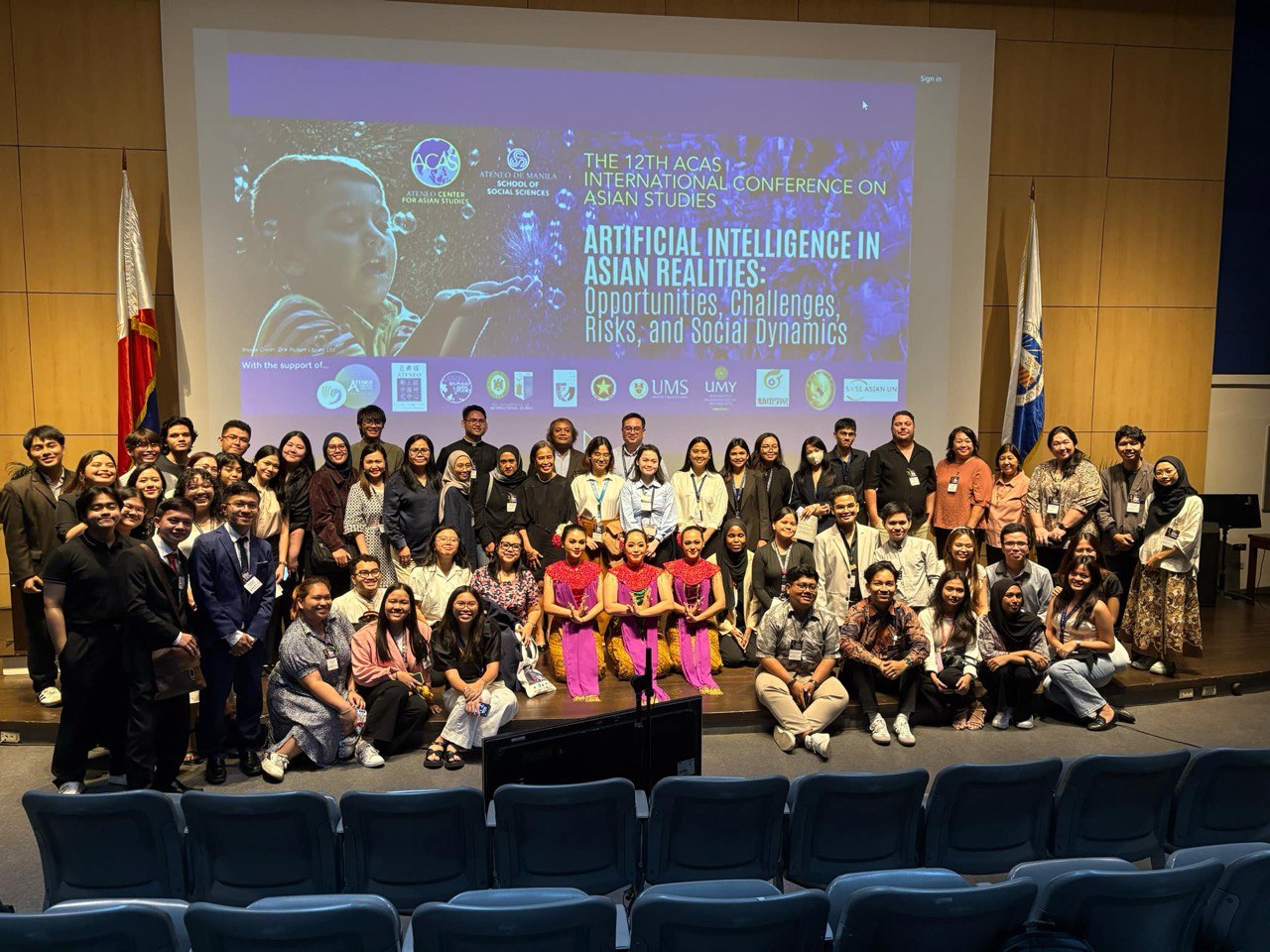
Key sponsors of the conference were the Confucius Institute at Ateneo and the Ricardo Leong Center for Chinese Studies (RLCCS). It was held in collaboration with Ateneo Initiative for Southeast Asian Studies (AISEAS) and academic partners from here and abroad, including Universiti Malaysia Sabah (UMS), Universitas Muhammadiyah Yogyakarta (UMY), School of Journalism - Yunnan University, Centro Escolar University (CEU), Far Eastern University (FEU) - Department of International Studies, Polytechnic University of the Philippines (PUP) and the Asian Studies Association of the Philippines (ASIA-PHIL). Likewise the Indonesian Embassy, Intermatrix, and Rebisco provided support. Ateneo units provided backend support including the Eugenio Lopez Jr Center for Multimedia Communication , Digital Information and Technology Services (DITS), Central Facilities Management Office (CFMO), and Campus Safety and Mobility Office (CSMO).
